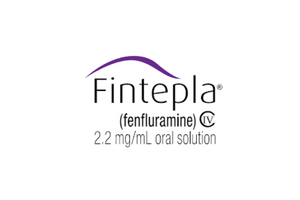
New research recently published in leading Epilepsy Medical journal, Epilepsia, has reported positive results on the use of FINTEPLA® (Fenfluramine) in the treatment of Dravet Syndrome.
Dravet Syndrome is a rare, genetic, refractory form of epilepsy that usually develops in childhood. It is often characterised by frequent and prolonged seizures of varying types. Many children living with Dravet syndrome will also have additional needs alongside their seizures and due to the refractory nature of their condition, their seizures are unlikely to be well controlled by traditional anti-epileptic drugs.
This new research on the use of FINTEPLA® emanates from Germany – where a compassionate access programme for the drug was established in March 2019.
From that period up until February 2021, 78 patients with Dravet Syndrome were treated with the medication as an adjunctive therapy – i.e; the medication was used alongside their other anti-epileptic drugs.
This research assessed the recorded patients’ responses to the medication during this period.
Each patient was on the medication for an average of 255 days and had an average age of 8 years old. On average, these patients were prescribed three other anti-epileptic medications.
Key findings include:
- 68% of patients in the study experienced at least a 50% reduction in seizures and 14% reported having no seizures.
- Average seizure days per month significantly decreased from 10 to 3 in the 3-month period before and after treatment with Fenfluramine.
- Significantly fewer patients reported at least one episode of status epilepticus; 28% of patients reported this before treatment with Fenfluramine while 14% of patients reported it after treatment.
- 45% of patients were able to discontinue use of one of their other AEDs during treatment with Fenfluramine.
- An average reduction in seizures of over 50% was recorded at check ups at 3 months, 6 months and 12 months since the beginning of treatment.
The medication was generally well tolerated by patients with drowsiness, loss of appetite and impaired coordination most reported amongst study participants.
The data on adverse events is of particular importance in this study. Previously, fenfluramine had been used as a treatment for weight loss in adults. However, the medication was withdrawn due to reports of cardiac issues in patients who were treated with high doses of the drug. Although the treatment in Dravet was with much lower doses, due to this previously reported issue, patients involved in this study had echocardiograms every 6 months to monitor any impact the medication may be having on the heart. No cardiac impacts were observed in study participants.
FINTEPLA® has received European Marketing Authorisation – which means that the drug’s manufacturers can now apply to have the drug reimbursed on the GMS in Ireland. However, the drug’s manufacturers have yet to apply to the authorities here. We understand that an application will be made to the Irish authorities early next year.
We will continue to monitor developments and provide updates on epilepsy.ie. Families of children with Dravet syndrome are desperate for new treatments and the evidence to date suggests that this medication could have a significant impact in the treatment of Dravet Syndrome.
You can read about the research by visiting the 'Online Wiley Library' website.
